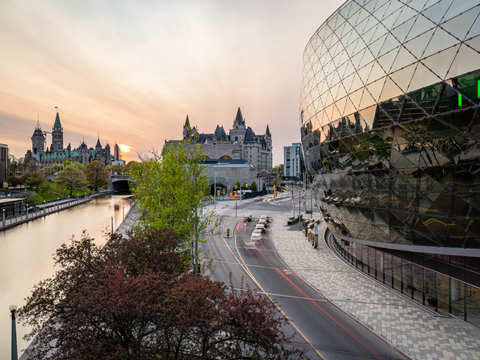
From WWF’s perspective, discussions of a Global Plastics Treaty at INC-4 ‘yielded some success’ in combating the plastic waste crisis, yet negotiations ‘moved at too slow a pace’ to match current pollution levels.
Reflecting on the discussions, WWF says that additional rules were developed to outlaw ‘problematic’ and avoidable plastics, but it remains unclear whether measures will be introduced to cut down on production and consumption – or whether any measures introduced will be harmonized and legally binding, or voluntary alternatives based on national plans.
It asserts that over 15 million tonnes have plastic have leaked into the ocean since negotiations began, and that negotiators are falling behind on the scale and speed needed to tackle this rate of pollution.
Eirik Lindebjerg, Global Plastics Policy lead at WWF International, asked: “Countries have made important progress in Canada with constructive discussions on what the treaty will actually do, but the big decisions still remain: will we get the strong treaty with common global rules that most of the world is calling for, or will we end up with a voluntary watered-down agreement led by least common denominator values?
“Negotiators need to recognize that plastic pollution is an accelerating global crisis that cannot be solved with fragmented national approaches. Governments must now employ all possible means to step up progress between the meetings on measures that will have the biggest impact on addressing plastic pollution across plastic’s full lifecycle - in particular, global bans on high-risk products and chemicals, global product design requirements and a robust financial package to secure a just transition.”
Binding global bans, phase-outs of high-risk products and chemicals, the creation of mandatory Extended Producer Responsibility schemes, common product design requirements, and a financial package to streamline the treaty’s implementation were among the topics generally agreed upon by participating nations. However, the strength of the measures is still in disagreement.
WWF now highlights the importance of ‘translat[ing] this majority alignment into clear texts that provide for how the treaty can be implemented’.
Formal intersessional work will take place in the run-up to INC-5 in Busan, Republic of Korea. WWF describes this work as ‘pivotal’ in establishing lists of harmful and avoidable plastic products and chemicals; guidance to help manufacturers design their products for recycling and reuse; and analyzing the necessary financial package for implementing the treaty.
This work is expected to grant countries the time and opportunity to build upon measures being discussed for the treaty – but WWF warns that, since the mandate does not yet include ‘critical measures’ like lowering the production of primary plastic polymers, informal work should also take place in the meantime.
The organization encourages all governments to ‘explore every effort to advance progress between sessions’ – this constitutes formal and informal intersessional work, country-led technical meetings, and ministerial conferences. These are all thought to prepare negotiators for negotiations and the finalization of the treaty.
A ministerial conference set to be hosted by Canada, Ecuador, Germany, and Ghana, announced by Germany at Canada and WWF’s Partnerships Day, has been welcomed by WWF.
“This week showed that the majority of countries want a strong treaty with binding global rules on harmful and avoidable plastic and common product design requirements,” Lindebjerg added. “With an unprecedented opportunity in front of them, now is the time for world leaders to show their political will and deliver a treaty strong enough to outpace the speed in which the global plastic pollution crisis is accelerating.”
Erin Simon, vice president and head of Plastic Waste and Business, issued the following statement upon the session’s conclusion:
“The pressure was on at INC-4 for countries to make up for lost time. With the world watching, negotiators made incremental progress by including some of the key ingredients needed for a successful treaty.
“With so much at risk, this problem will require global alignment on ways to reduce our use of plastic and stop it from leaking into nature. More work must be done between now and the final round of negotiations if we’re going to deliver an effective and legally binding treaty that people and the planet deserve.”
At the start of INC-4, we spoke to Simon about the Treaty’s progress thus far. She stated that “this process will never be fast enough for what the planet needs”, but described the summit as “our last best chance to get this done”.
She felt that the establishment of bans, product design, financing, a mandate for an updated zero draft before INC-5, and general agreement for formal intersessional work to take place in the meantime would put negotiators in a good position going forward.
Willemijn Peeters, founder of Searious Business, also told us about her perception of the event. She noted an increased ‘sense of urgency’ and a focus on restrictions, phase-outs, product design requirements, Extended Producer Responsibility, and waste management.
If you liked this story, you might also enjoy:
The Brief: How viable is biorecycling for plastics?
Report: How the top brands are progressing on packaging sustainability
The Brief: Using ocean-bound plastic in packaging – how, why and should we?














No comments yet